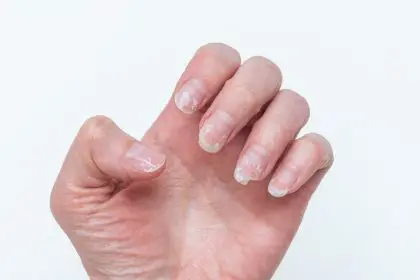Boils are not just pesky skin issues; they often serve as messengers, alerting you to underlying battles your body is fighting. These inflamed, pus-filled bumps can be painful and alarming, appearing when your body is trying to communicate important signals about your health.
Understanding the deeper meaning behind boils can help you take proactive steps toward better health. By recognizing what these skin manifestations indicate, you can address potential issues before they develop into more serious conditions. Below, we explore five crucial things boils may signal about your body’s defense mechanisms and overall well-being.
1. Weakened immune system
When boils appear, your body might be signaling that your immune system is under strain. The immune system serves as your first line of defense against bacteria like Staphylococcus aureus, which often causes boils. A weakened system might struggle to keep these invaders in check, allowing infections to develop.
Persistent boils could indicate underlying conditions such as:
- Chronic stress impact
- Ongoing malnutrition
- Autoimmune disorders
- Sleep deprivation
- Other medical conditions
Supporting your immune system becomes crucial through:
- Nutrient-rich food choices
- Regular physical activity
- Adequate sleep patterns
- Stress management
- Proper hydration
2. Diabetes or blood sugar imbalances
Boils can sometimes be a red flag for diabetes or insulin resistance. High blood sugar levels create an ideal environment for bacterial growth, making you more susceptible to skin infections, including boils.
Critical concerns include:
- Delayed wound healing
- Increased infection risk
- Compromised circulation
- Recurring outbreaks
- Resistant infections
Regular monitoring becomes essential through:
- Blood sugar testing
- Dietary adjustments
- Exercise routines
- Medical check-ups
- Skin examinations
3. Poor hygiene and clogged pores
While boils can indicate systemic health issues, they may also result from poor hygiene or clogged pores. When sweat, oil, and bacteria become trapped under the skin, they can form abscesses that develop into boils.
Prevention requires attention to:
- Regular skin cleansing
- Proper shower habits
- Clean clothing choices
- Personal item hygiene
- Environmental factors
Daily practices should include:
- Mild soap cleansing
- Post-exercise showering
- Clean towel usage
- Avoiding shared items
- Proper wound care
4. Vitamin or nutrient deficiencies
Boils might signal that your body lacks essential nutrients, particularly vitamin A, vitamin E, or zinc. These nutrients prove vital for skin health and immune function. Without them, your body may struggle to repair damaged skin and fight off infections.
Essential nutrients include:
- Vitamin A for repair
- Vitamin E for protection
- Zinc for healing
- Protein for rebuilding
- Vitamin C for immunity
Dietary improvements should focus on:
- Leafy green vegetables
- Nuts and seeds
- Lean proteins
- Fresh fruits
- Whole grains
5. Stress and hormonal imbalances
Stress and hormonal fluctuations can contribute to boil formation. High stress levels weaken your immune system, while hormonal shifts—such as those during puberty, pregnancy, or menstrual cycles—can increase oil production and clog pores.
Common triggers include:
- Chronic stress
- Hormonal changes
- Pregnancy
- Menstrual cycles
- Endocrine disorders
Management strategies involve:
- Stress reduction techniques
- Regular exercise
- Adequate hydration
- Proper sleep
- Professional guidance
Prevention strategies
Effective boil prevention requires a comprehensive approach:
Daily habits:
- Regular handwashing
- Proper skin cleansing
- Clean clothing
- Adequate hydration
- Stress management
Long-term practices:
- Balanced nutrition
- Regular exercise
- Sufficient sleep
- Medical check-ups
- Stress reduction
When to seek medical attention
While boils often resolve independently, certain signs warrant immediate medical attention:
- Fever development
- Significant pain
- Spreading redness
- Multiple outbreaks
- Slow healing process
Additional warning signs include:
- Large or deep boils
- Facial infections
- Accompanying illness
- Diabetes presence
- Immune compromise
Moving forward
Understanding what boils signal about your health enables informed steps toward addressing root causes. Whether improving hygiene, boosting immunity, or seeking medical guidance, paying attention to these signs equips you to support your body’s fight effectively.
Remember that your skin often reflects internal health status. Taking action based on these signals through proper prevention and timely medical intervention ensures better overall health outcomes.
This story was created using AI technology.















